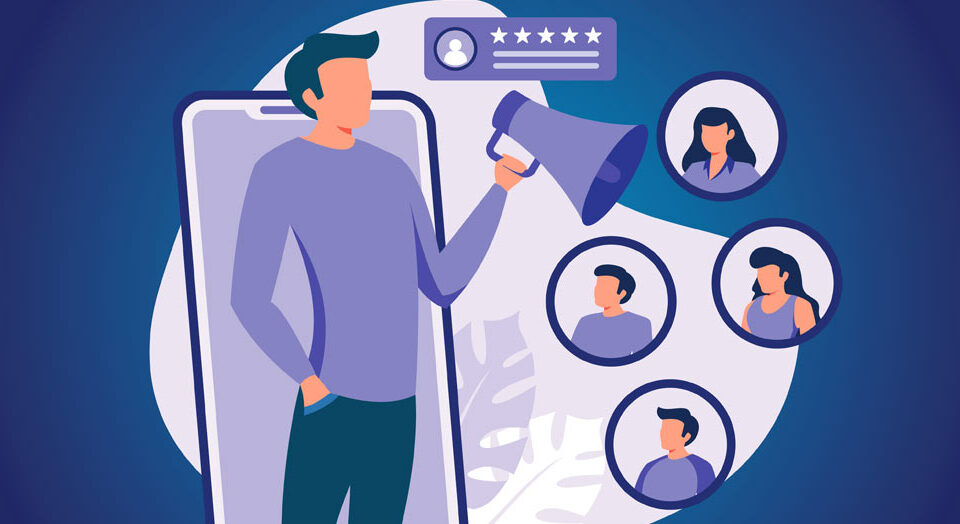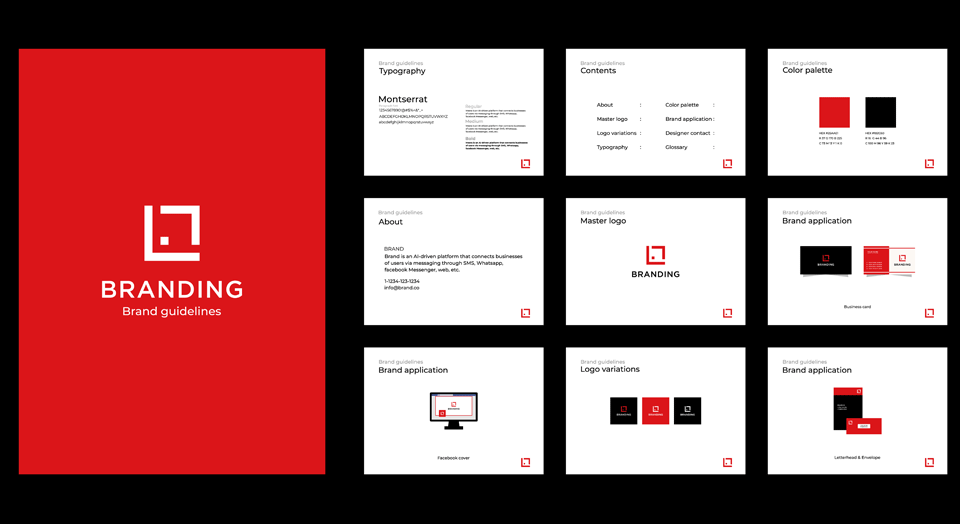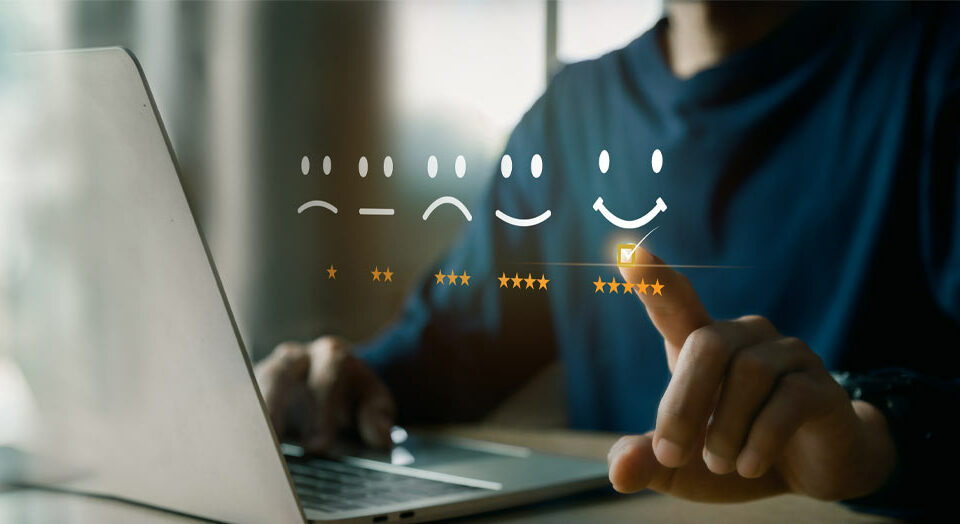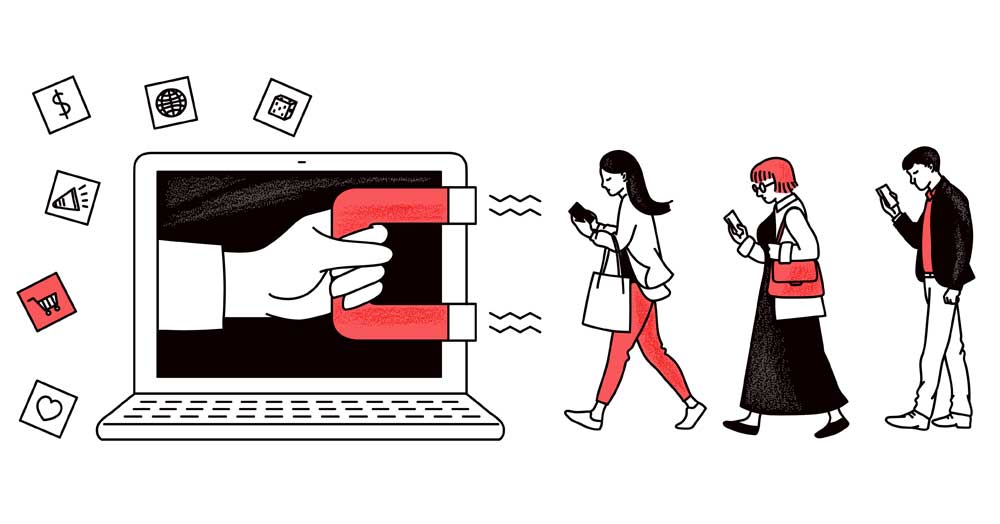
9 Ways to Reduce the Time You Spend Generating Leads
May 11, 2022
How to Reach Your Ideal Customer
June 18, 202210 Crucial Differences Between B2B and B2C Marketing
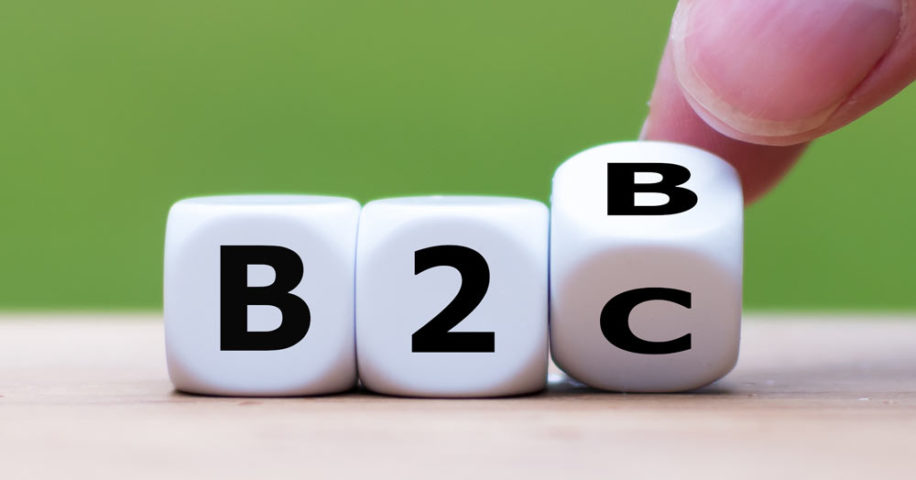
When switching from a focus on B2C (business-to-customer) sales to B2B (business-to-business) marketing, the approach to selling will need to change. The product or service may be identical. Nevertheless, the emphasis of your marketing will need to change. Those changes could be widespread, encompassing the website, marketing collateral, and the sales process.
Consumers may make purchases based on gratification or personal taste. Businesses, on the other hand, buy to generate profit. Consequently, business buyers are far more focused on ROI (return on investment). Business purchasers also buy on behalf of an employer, so they must justify their purchases. So, what does this mean for marketing?
1. B2B Has a Longer Buying Cycle
Businesses buy products and services to achieve the long-term goal of making money. Consequently, a business purchaser will spend more time evaluating products before buying. In contrast, a consumer will decide faster after only a limited amount of evaluation and comparison for most purchases. As a result, it will take longer to close a B2B sale, and the prospect will need to be nurtured every step of the way towards that decision.
2. More Stakeholders in a B2B Purchase
Consumers buy products for themselves. The decision to purchase is entirely their own or, for significant purchases, the decision might be shared with a partner. However, when a business makes a purchase, there will be multiple stakeholders. A business acquisition may require the approval of a chain of command. There may also be other stakeholders, such as the end-users of the product or service. All the stakeholders in a B2B buying decision will need to be convinced for a purchase to happen. So, marketing and sales efforts need to cater to multiple decision-makers.
3. Greater Emphasis on Long-Term Relationships in B2B
Businesses are more likely to look for long-term relationships with suppliers because they want stability and reliability in the supply chain. As a result, a business buyer will be more interested in the financial stability of a supplier than a consumer. Of course. Businesses do make one-off purchases, and consumers sign long-term contracts. However, company size and the ability to provide a long-term solution will be more of a factor in B2B buying decisions than consumer sales.
4. Price is Negotiable in B2B Sales
The price of consumer products tends to be non-negotiable. There are, of course, exceptions to this. For example, a consumer might negotiate the price of a service, such as landscaping or home renovations. Still, consumers expect to pay the advertised price for most products. Business purchases, however, tend to be high-volume and repeating, so B2B buyers will expect to negotiate on price. Consequently, companies selling to businesses will need more flexibility in their pricing. Indeed, unlike consumer advertising, the price may not appear at all on B2B marketing material
5. ROI is Crucial for Businesses
As mentioned in the introduction, businesses look for a return on investment when making purchases. So, benefits such as efficiency, cost savings, and added value are more critical than they might be in a consumer sale. Consumers might be looking for entertainment, life enrichment, or short-term satisfaction. Businesses, however, are seeking an improvement to the bottom line. Indeed, even purchasing something like a water cooler has an ROI in employee productivity. Consequently, B2B marketing needs to be more ROI-focused than emotional.
6. Jargon is Best Avoided in B2C Sales
It is best to keep the sales message simple in B2C marketing. For example, focus on the benefits and avoid using industry jargon. B2B buyers, on the other hand, will be more conversant with industry jargon and, arguably, better informed. So, product descriptions and marketing literature tend to be more detailed and technical. As with all the differences mentioned here, there are exceptions. For example, a consumer purchasing a personal computer will be familiar with computer hardware jargon and use technical specifications in product comparisons.
7. B2C Sales Are More Emotional
Business purchases are practical, while consumers’ buying decisions may be driven by emotion. So, impulse buying is unlikely in a B2B sale. The sales cycle is longer, and tactics like the fear of missing will not be effective. Businesses are not influenced by peer pressure in the same ways as consumers are. Therefore, B2B marketing must appeal to the mind more than the heart.
8. B2C Advertising Needs to Be Attention-Grabbing
Business-to-business companies must compete for customers as much as B2C businesses. However, business buyers are more likely to be familiar with the players in the marketplace and research alternative suppliers. Furthermore, companies only investigate potential suppliers when they need a product or service. So, attention-grabbing advertising is unlikely to increase leads significantly. Consumers, however, will buy because they see an advertisement. B2C advertisers are also competing for attention against other, non-related products. Consequently, advertising must stand out to gain the attention of potential customers.
9. Broader Target Audience for B2C Marketing
There are niche consumer products with specific customer bases, but most B2C products appeal to a broad range of consumers. Consequently, B2C marketing is often targeted at platforms with broad reaches, such as social media, television, and billboard advertising. There are far fewer businesses than individual consumers, and B2B products can be specific to industry sectors. So, B2B marketing and advertising will be more cost-effective if targeted at specific niche markets, for example, trade and professional publications and shows and LinkedIn.
10. B2B Average Order Value Higher
Longer sales cycles, narrow target markets, and negotiable prices might make B2B sales appear unattractive. However, the average total value of a B2B sales order is likely to be many times that of a consumer order. So, while the marketing costs may be higher and the gross margins lower, the average order value will be significantly higher, justifying the higher customer acquisition cost.
To sum up, B2B sales take longer, involve more people, and are rarely driven by emotion. So, marketing and the sales process must nurture prospects rather than focus on a quick sale. And B2B marketing and advertising are generally targeted at a narrower audience than B2C marketing.
Of course, some businesses sell their products to consumers and other companies. For example, you can buy a can of Coke in a store and order bulk supplies of Coke for your bar or restaurant. However, companies operating in B2B and B2C markets usually do so through separate divisions using different marketing, pricing, product packaging, and pack sizes because of the differences mentioned above.


